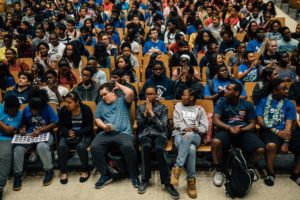From The New York Times: “We used to have this top-down notion that reason was on a teeter-totter with emotion. If you wanted to be rational and think well, you had to suppress those primitive gremlins, the emotions. Teaching consisted of dispassionately downloading knowledge into students’ brains.
Then work by cognitive scientists like Antonio Damasio showed us that emotion is not the opposite of reason; it’s essential to reason. Emotions assign value to things. If you don’t know what you want, you can’t make good decisions.
Furthermore, emotions tell you what to pay attention to, care about and remember. It’s hard to work through difficulty if your emotions aren’t engaged. Information is plentiful, but motivation is scarce.
That early neuroscience breakthrough reminded us that a key job of a school is to give students new things to love — an exciting field of study, new friends. It reminded us that what teachers really teach is themselves — their contagious passion for their subjects and students. It reminded us that children learn from people they love, and that love in this context means willing the good of another, and offering active care for the whole person. […]
Patricia Kuhl of the University of Washington has shown that the social brain pervades every learning process. She gave infants Chinese lessons. Some infants took face-to-face lessons with a tutor. Their social brain was activated through direct eye contact and such, and they learned Chinese sounds at an amazing clip. Others watched the same lessons through a video screen. They paid rapt attention, but learned nothing. […]
And students have got to have a good relationship with teachers. Suzanne Dikker of New York University has shown that when classes are going well, the student brain activity synchronizes with the teacher’s brain activity. In good times and bad, good teachers and good students co-regulate each other.
The bottom line is this, a defining question for any school or company is: What is the quality of the emotional relationships here? […]
When you start thinking this way it opens up the wide possibilities for change. How would you design a school if you wanted to put relationship quality at the core? Come to think of it, how would you design a Congress?”












